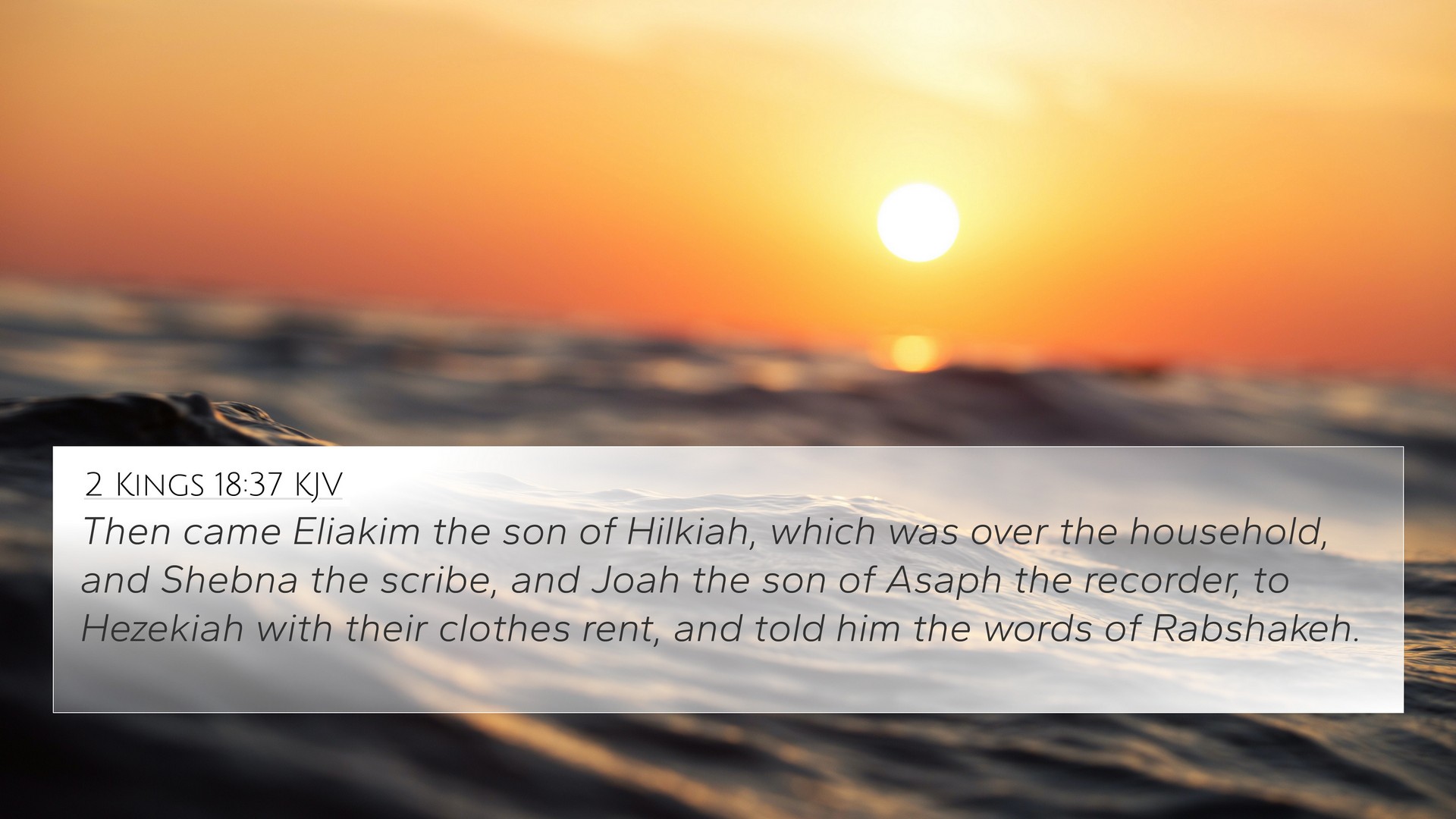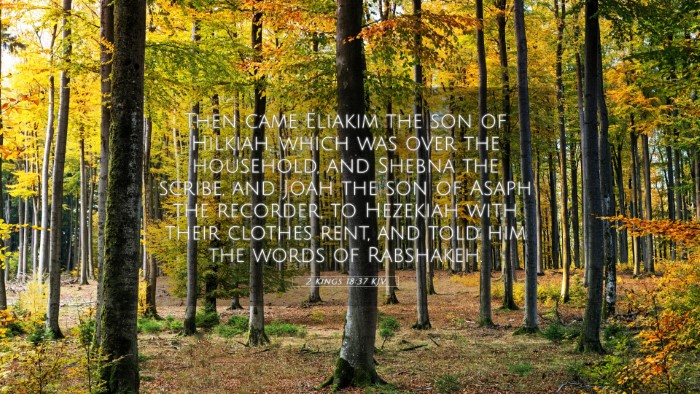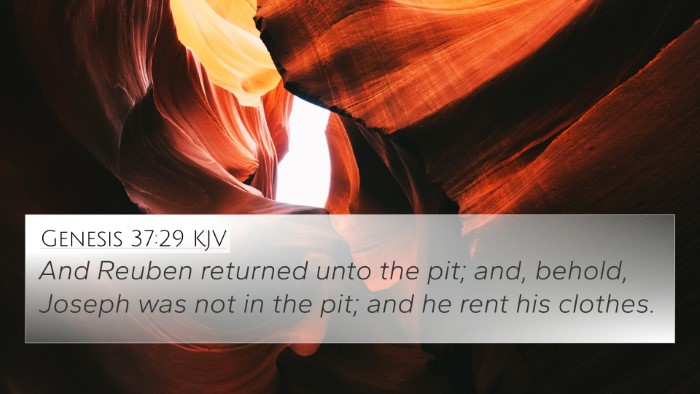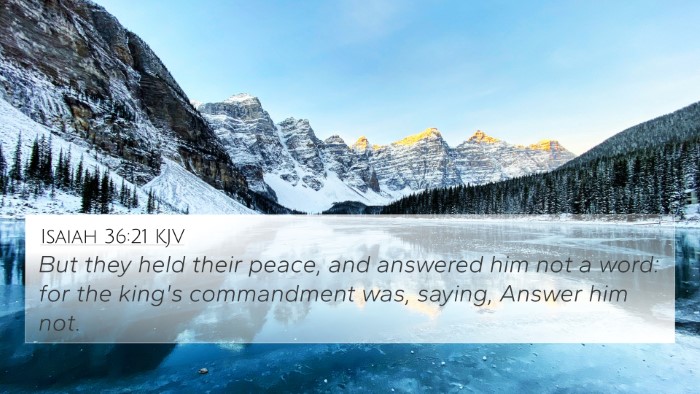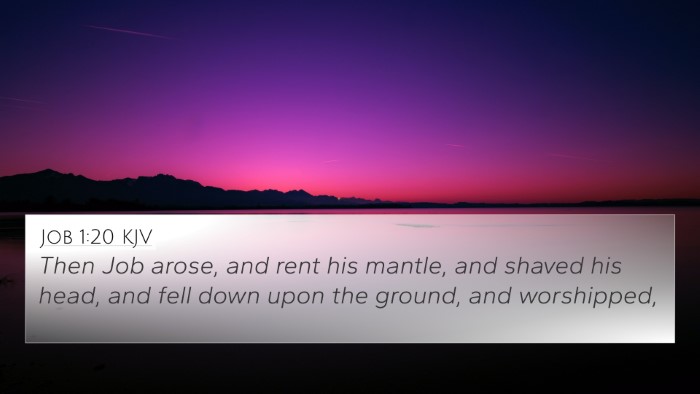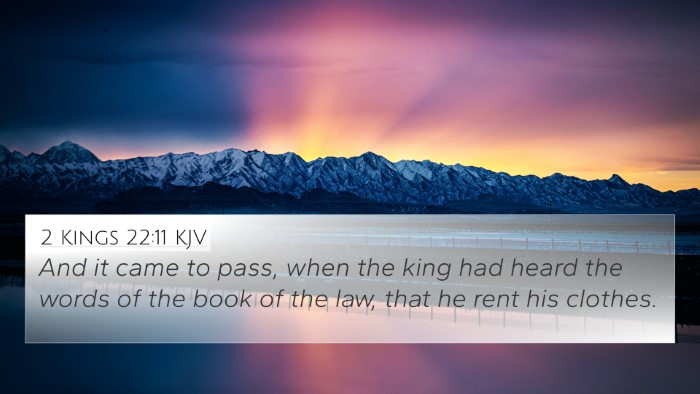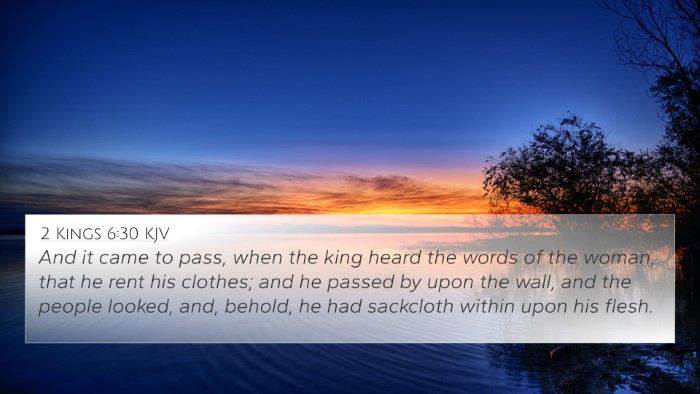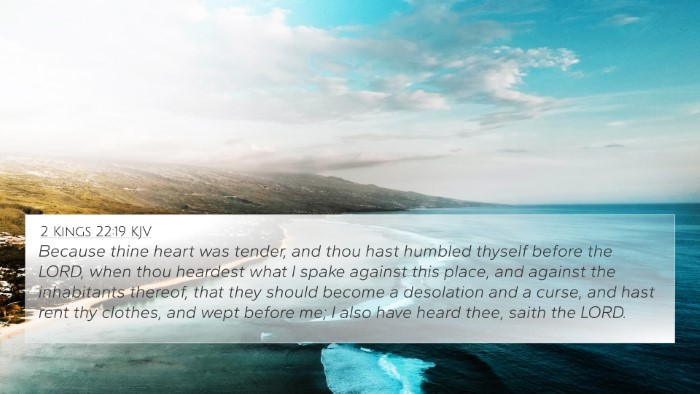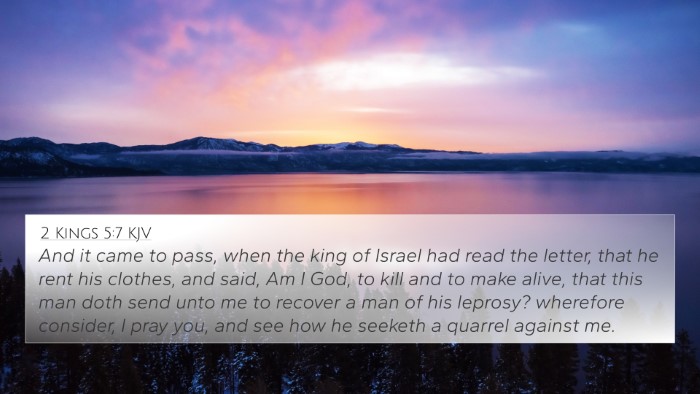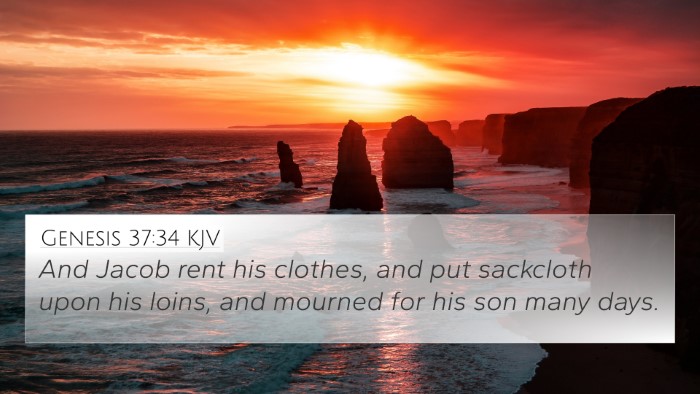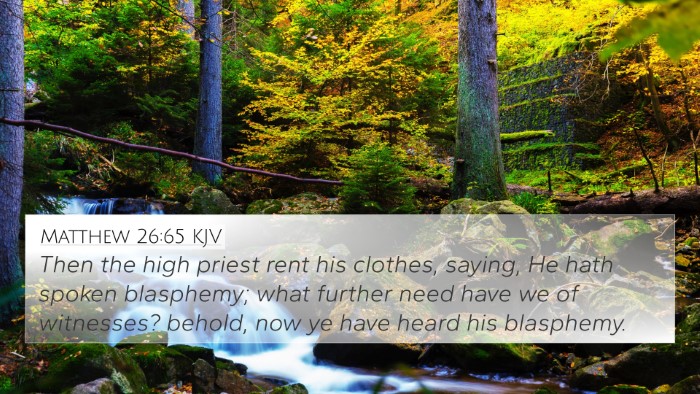Understanding 2 Kings 18:37
2 Kings 18:37 states: "Then came Eliakim the son of Hilkiah, who was over the household, and Shebna the scribe, and Joah the son of Asaph, the recorder, to Hezekiah with their clothes rent, and told him the words of Rabshakeh."
This verse occurs during a critical moment in biblical history where the Assyrian King Sennacherib has sent his envoy Rabshakeh to intimidate the people of Jerusalem. It illustrates the anxiety and distress faced by Hezekiah's leaders in response to the Assyrian threats.
Commentary Highlights
-
Matthew Henry:
Henry emphasizes the significance of the officials' torn clothes, which symbolize grief and despair in the face of overwhelming odds. This act shows their recognition of the dire circumstances and the seriousness of the situation.
-
Albert Barnes:
Barnes notes the role of Eliakim, Shebna, and Joah as representatives of Judah, highlighting the importance of their mission to relay the threats posed by Rabshakeh to King Hezekiah. Their response serves as a potent reminder of the political and spiritual crisis confronting Jerusalem.
-
Adam Clarke:
Clarke discusses the historical context, citing the psychological warfare employed by the Assyrians and the fear it instilled in the Jerusalem populace. He points out how this verse exemplifies the importance of leadership during tumultuous times.
Key Insights
In summary, 2 Kings 18:37 reveals a pivotal moment where fear, leadership, and the seriousness of the Assyrian threat come together, setting the stage for God’s subsequent intervention in Jerusalem’s deliverance.
Bible Verse Cross-References
- Isaiah 36:22: This verse recounts a similar incident where the same envoys are addressed, reinforcing the themes of fear and leadership.
- 2 Kings 19:1-2: Here, Hezekiah’s reaction to the news of Rabshakeh's threats is highlighted, showcasing leadership under pressure.
- Isaiah 37:1: This passage continues the narrative, showing Hezekiah's appeal to God, emphasizing faith amidst adversity.
- 2 Chronicles 32:20-21: This offers a parallel account of these events, detailing the response to the Assyrian siege.
- Psalm 46:1: A reflection on God as a refuge and strength, offering assurance during times of trouble.
- Matthew 27:51: The tearing of garments in despair echoes the symbolic act seen in 2 Kings, signifying a moment of great grief.
- Philippians 4:6-7: Encouragement to not be anxious but to bring concerns to God, which translates spiritually from the distress of Jeremiah’s day.
- Hebrews 11:32-34: Illustrates the faith of leaders who stood firm in the face of threats, akin to the leaders in Hezekiah’s time.
- Romans 15:4: Highlights that the events in Scripture were recorded for our instruction in faith and perseverance, applicable to the trials faced here.
- 1 Corinthians 10:11: Points out that the experiences of the past are for our warning and guidance, emphasizing the historical lessons in 2 Kings.
Thematic Bible Verse Connections
This verse and its related passages demonstrate significant themes such as:
- The role of leadership in crisis: Seen in the actions of Hezekiah and his officials.
- The importance of faith in dire circumstances: As established through Hezekiah’s response.
- The effects of intimidation and psychological warfare: As exemplified by Rabshakeh’s slanderous declarations against Judah.
- God's eventual deliverance: A recurring theme highlighted throughout these accounts.
Conclusion
2 Kings 18:37 serves not only as a historical account but also as a powerful reminder of the importance of faith, leadership, and community in the face of fear. Through cross-referencing corresponding biblical texts, we gain a broader understanding of how themes of despair, hope, and divine intervention weave throughout scripture.
